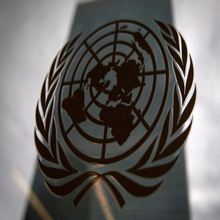Since suffering a recession and full year of negative growth in 2016, Nigeria, Africa’s largest economy has recovered—slowly.
Data from Nigeria’s statistics bureau shows the pace of recovery remains slow despite noting a milestone: gross domestic product (GDP) grew by 2.55%—the highest quarterly growth rate since the 2016 recession. Overall, Nigeria’s economy grew 2.27% in 2019, slightly higher than it did in the preceding year. And, as is often the case, Nigeria’s economic growth was anchored on its oil exports with production levels remaining stable throughout 2019.
But while being its recent best performance, the economic growth rate remains short of the government’s projections.
The government’s Economic Recovery and Growth Plan (EGRP), launched in the aftermath of the recession, was anchored on aggressive growth from 2017 to 2020 in a bid to turn the economic slump around. But the latest data confirms Nigeria’s economy fell short of the EGRP’s projected GDP growth rate of 4.5% in 2019. In fact, most EGRP projections have been off the mark. For instance, Nigeria’s unemployment rate is nearly double the EGRP’s projected 12% target.
While government’s spin will likely focus on the reality of the economy’s best quarterly performance since the recession, a more nuanced view is that the growth is simply not happening as urgently as the country’s challenges and population growth requires. “The challenge from the policy environment is that the economy will continue to be sluggish—this 2.55% [growth rate] is a continuation of that sluggishness,” says Nonso Obikili, a Lagos-based economist.
Looking forward Nigeria is forecasting economic growth of 7%, but most observers will find that estimate over-optimistic. In January the IMF forecast economic growth of 2.5% in 2020 and in 2021. This would be below sub-Saharan Africa’s average growth rate of 3.5% in both years.
The dampening news for Nigeria is that as much policymakers try to encourage the diversification of the economy the country is still heavily reliant of oil export earnings. This means its fragile economic growth can be abruptly reversed if oil prices drop. This outcome is now a very real possibility amid the coronavirus outbreak in China hitting the global economy and pushing oil prices lower than Nigeria’s budgetary benchmark of $57 per barrel.
In its analysis of the outbreak’s potential economic impact on Nigeria, SBM Intel, a Lagos intelligence firm, says Nigeria is “at risk” of another recession given its “over reliance” on oil sector proceeds. “If oil demand continues to fall with no OPEC intervention in the form of production cuts, tightening supply, a country like Nigeria will be negatively impacted by the downward price trend,” it says.
Sign up to the Quartz Africa Weekly Brief here for news and analysis on African business, tech and innovation in your inbox










